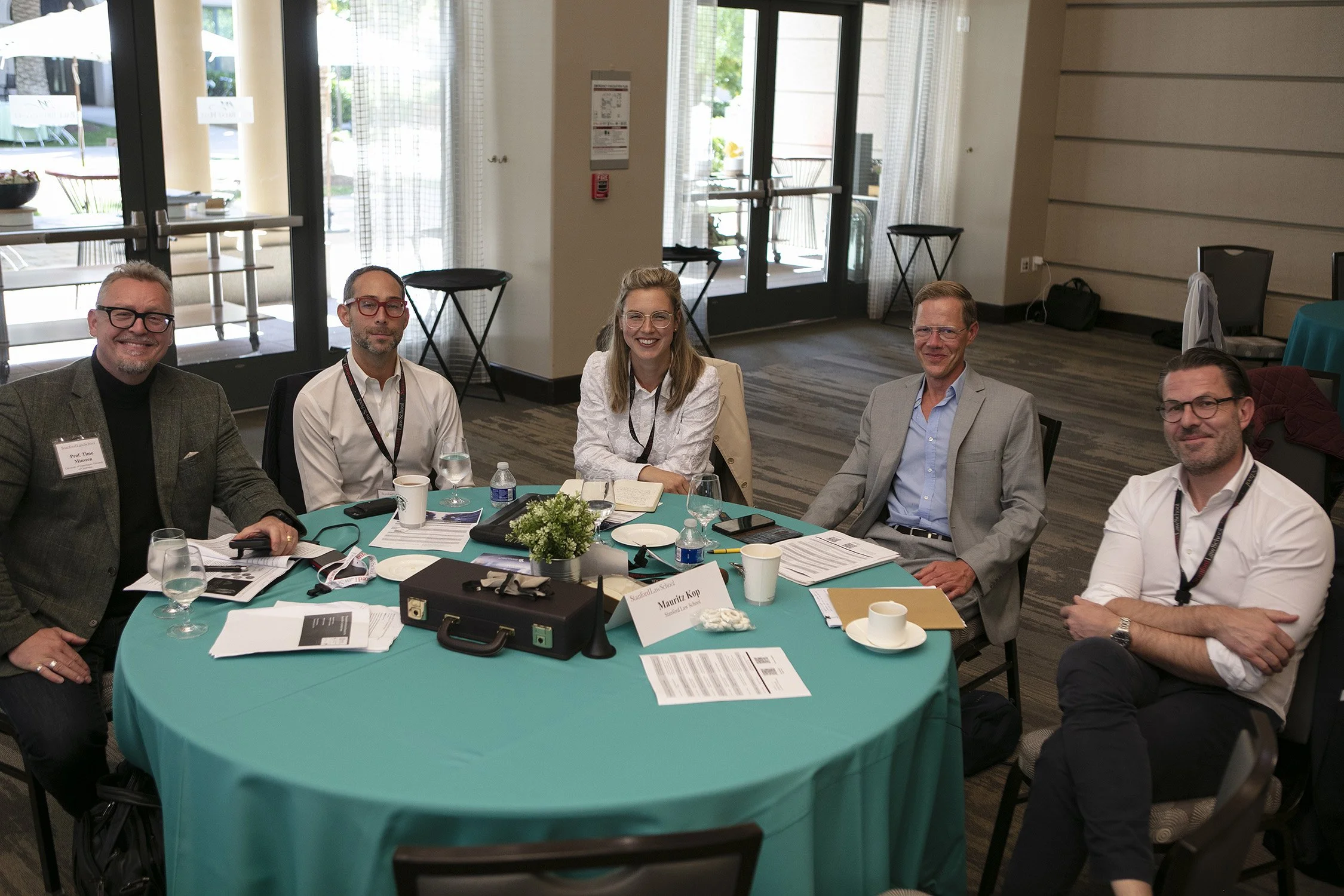Stanford, April 22, 2024—The leading peer-reviewed journal Quantum Science and Technology has published the open-access article, "Ten Principles for Responsible Quantum Innovation," a significant paper that offers actionable guidance for the ethical development of quantum technologies. The publication is the result of a two-year, deeply interdisciplinary study by a transatlantic group of leading scholars and represents a major step forward in operationalizing a framework for responsible quantum innovation.
This work builds upon the foundational research of the group, including the "Towards Responsible Quantum Technology" paper published by the Harvard Berkman Klein Center, and will be central to the mission of the Stanford Center for Responsible Quantum Technology.
A Global, Interdisciplinary Collaboration
The paper is a testament to the power of global, interdisciplinary collaboration. Authored by a spectacular team of leading lights in law, philosophy & ethics, socioeconomics, data science, quantum physics, materials science & engineering, and innovation policy, the study brings together a wealth of expertise from the world's most prestigious academic institutions.
The author group, led by Mauritz Kop of Stanford University, includes Mateo Aboy (University of Cambridge), Eline De Jong (University of Amsterdam), Urs Gasser (Technical University of Munich), Timo Minssen (University of Copenhagen), I. Glenn Cohen (Harvard University), Mark Brongersma (Stanford University), Teresa Quintel (Maastricht University), Luciano Floridi (University of Oxford and Yale University), and Raymond Laflamme (University of Waterloo). This formidable team provides a holistic and robust foundation for the quantum governance principles outlined in the paper.
A Framework for Responsible Quantum Innovation
The paper's central contribution is a set of ten guiding principles designed to operationalize a framework for Responsible Quantum Technology (RQT). This framework seeks to integrate considerations of the Ethical, Legal, Social, and Policy Implications (ELSPI) of quantum technologies directly into the research and development lifecycle, while also responding to the core dimensions of Responsible Research and Innovation (RRI): anticipation, inclusion, reflection, and responsiveness.
The principles are organized into three functional categories, termed the SEA framework, which provides a methodological guide for the quantum community:
Safeguarding: This pillar focuses on the proactive identification and mitigation of risks associated with quantum technologies.
Engaging: This principle emphasizes the critical need for inclusive and continuous dialogue among all stakeholders, from researchers and industry to policymakers and the public.
Advancing: This pillar is dedicated to ensuring that quantum technology is actively steered towards desirable societal outcomes and contributes to addressing the world's most pressing challenges.
The Ten Principles for Responsible Quantum Innovation
The Ten Principles paper proposes the following ten actionable principles to help address the risks, challenges, and opportunities associated with the entire suite of second-generation quantum technologies:
Information Security: Make information security an integral part of QT, proactively addressing security threats, including the risk quantum computers pose to current encryption standards.
Dual Use: Proactively anticipate the malicious use of quantum applications by addressing the risks of dual-use technologies that can be employed for both beneficial and harmful purposes.
Quantum Race: Seek international collaboration based on shared values to address the winner-takes-all dynamics of a potential quantum arms race.
Quantum Gap: Consider our planet as the sociotechnical environment in which QT should function, engaging states to ensure equitable access and prevent a "quantum divide."
Intellectual Property: Incentivize innovation while being as open as possible and as closed as necessary, engaging institutions to find the right balance between protecting intellectual property and fostering an open research environment.
Inclusion: Pursue diverse R&D communities in terms of disciplines and people, engaging a wide range of voices to ensure a holistic approach to innovation.
Societal Relevance: Link quantum R&D explicitly to desirable societal goals, advancing society by focusing on applications that address pressing needs.
Complementary Innovation: Actively stimulate sustainable, cross-disciplinary innovation, advancing technology by exploring synergies with other fields like AI and biotechnology.
Responsibility: Create an ecosystem to learn about the possible uses and consequences of QT applications, advancing our understanding of Responsible QT through continuous feedback and assessment.
Education and Dialogue: Facilitate dialogues with stakeholders to better envision possible quantum futures, advancing our collective thinking and education about QT and its impact.
A Catalyst for a Values-Based Quantum Future
The overarching objective of this interdisciplinary effort is to steer the development and use of quantum technology in a direction that is not only consistent with a values-based society but also actively contributes to solving its most significant challenges. The "Ten Principles for Responsible Quantum Innovation" provides a crucial foundation for this work.
The paper is a call to action for the entire quantum community—researchers, industry leaders, policymakers, and the public—to engage in the vital work of building a responsible quantum ecosystem. As the authors conclude, the goal is to develop and operationalize these guiding principles into the best practices and real-world applications that will define the quantum future. The annual Stanford RQT Conference, among other initiatives, will continue to provide a forum for these critical, interdisciplinary discussions.
Meer lezen




